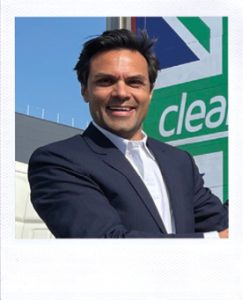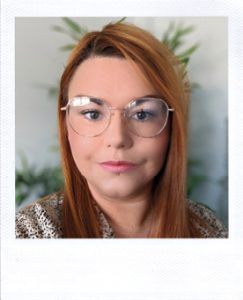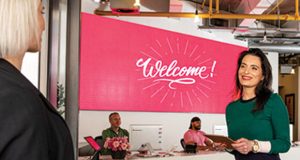 THE CLEANING CEO’S VIEW
THE CLEANING CEO’S VIEW
DOMINIC PONNIAH,
CEO CLEANOLOGY
As suppliers to the FM sector, cleaning businesses face many of the same struggles when it comes to diversity, equality, and inclusion. Historically, the situation has perhaps been even more stark. While women and people from ethnic minorities feature heavily on the payroll for low-paid, unskilled work, managers and directors are typically white and male.
At Cleanology, we do not operate quotas, but staff in our multilingual business come from over 20 countries and ethnic backgrounds and speak six different languages. Our cleaning operatives come from 34 different countries. We are also fortunate to have recruited and retained roughly 40:60 male and female employees, with women making up 40 per cent of managerial and senior roles.
Recruitment from within the organisation has had a strong impact on the diversity of our organisation at every level. As well as being led by a young ethnic minority CEO, our senior leadership team is made up of two-thirds ethnic minority background men and women, recruited purely on their own merit and performance.
To win the trust of any marginalised group, employers need to show, rather than tell.
We show that we value all staff with a commitment to fair pay. In 2022, 99 per cent of all our new business was won paying the Real Living Wage or higher, and our long-term commitment to fair pay in the cleaning industry resulted in us winning a Living Wage Champion Award in 2021. There is no clearer message for staff to show that they are valued.
The importance of role models should not be underestimated. One of the most recent additions to the Cleanology board, Jade Collazo – our Director of HR – started at the company as a temp. She cites a strong female role model in HR, and having a young, ethnic minority CEO as powerful influences in her journey. One of the standout results from recent staff surveys is the fact that we have been able to foster a significant LGBTQ+ community in the business, where all groups feel safe and welcome. Seven and a half per cent self-identified as LGBTQ+, compared to the national average of 2.2 per cent. In every survey over the past two years, 91–96 per cent of our staff agree that ‘Cleanology is fully-dedicated to diversity and inclusivity’.
Having a culture which embraces diversity and inclusivity helps create tangible benefits. One of the most important is staff retention. The UK cleaning industry’s retention average is only 79 per cent compared to a UK general average of 86 per cent. Through a combination of its culture, communication, compensation, onboarding, training, and recognition and reward, Cleanology achieves a retention rate of 94 per cent, possibly the highest in the industry.
 THE FACILITIES MANAGEMENT SUPPLIER’S VIEW
THE FACILITIES MANAGEMENT SUPPLIER’S VIEW
LYNZIE WILLS,
WELLBEING, DIVERSITY & INCLUSION MANAGER, CHURCHILL
Having previously spent 17 years in the banking sector, and from my “outsider” perspective I think that one of the biggest barriers to improving DEI is a lack of awareness about the sector itself. Personally, I didn’t know a huge amount about FM and how broad it is prior to joining Churchill. I have now seen how many industries and locations are touched by FM, and while the sector could certainly benefit from increased DEI, I do think there is generally a good foundation in place.
It’s up to all of us to increase awareness. Practical strategies include signing up to programmes such as the Care Leavers Covenant and Neurodiversity in Business (NIB) charter. Forty five per cent of people surveyed by the National Autistic Society have lost a job because of challenges caused by autism, yet a CIPD poll in 2018 found that only one in 10 businesses were focusing on neurodiversity at work.
That may have improved slightly in the years since, but there is no doubt a big disparity between what support businesses offer versus what people need. Through the NIB charter, we can educate, celebrate and empower our employees, ultimately making our workplace a more inclusive environment for all. Various charities estimate that around 15 per cent of the UK population have at least one neurodiverse condition, so we are neglecting a huge number of people if we don’t consider their needs.
The other key area we can look at to improve DEI is about showcasing FM as a career, right from the first time someone sees a job posting. Again, I think there is a big misconception around the art of the possible when it comes to career opportunities and development with the FM sector – the possibilities are endless for a successful, fulfilling career.
Sharing role openings in places such as Women in FM and on diversity job boards is a good first step, but there is much more that can be done. We also need to consider the language that we use in postings as sometimes not getting the language right can be a deterrent without realising. This is why awareness and understanding is key when it comes to DE&I, to ensure we are transparent in our hiring and not exclusive or excluding to some.
Mentoring is also an important part of what we do at Churchill. We already have a very diverse senior leadership team who share their development journeys to inspire and motivate others from similar backgrounds to reach their potential.
We can’t transform DEI in FM overnight, but if we all commit to these types of ideas then the sector will certainly be heading in the right direction.
 THE ARCHITECTURE PRACTICE’S VIEW
THE ARCHITECTURE PRACTICE’S VIEW
WILLIAM POOLE-WILSON,
PRINCIPAL AT WILL+PARTNERS
With an increasing call for evidence that employers are committed to equality, businesses need to develop their DEI strategies to attract and retain a diverse pool of talent. We are extremely proud of our efforts to harness and enrich a diverse cohort of multi-skilled and talented members of our workforce. This didn’t come without active conscious engagement and a strong DEI roadmap from our team, however. It is very easy for any business to implement a number of changes or developments that may superficially appear to be a positive engagement, but new generations and newly developed workers will see through any façade. This is why it is essential for businesses to implement a living, breathing DEI strategy. It needs to live, breathe, grow and change with your business and people. You cannot put in hard work, launch a programme, and then plateau and think you’ve got your DEI and that’s that.
We launched the WILL Academy, our Apprenticeships programme, to open up the world of architecture by offering an accessible route into the industry. Its establishment stems from hearing the stories from some of our own staff about how getting a step up into the industry can be burdened by numerous obstacles. Traditional educational pathways often prove to be financially draining, time-consuming, and lacking in diversity. These challenges can be disheartening for individuals aspiring to enter the industry, particularly those from ethnic minority backgrounds. One of our very own architecture superstars, Ayokunle Ambali, has been doing fantastic work in speaking out and raising awareness about the challenges faced by some in the industry and beyond. Race, gender, social class and more are sadly the basis of barriers that many face and it’s our job as a business to challenge this with a strong and robust diversity, equality and inclusion stance.
It is vital that we all take a moment to consider those around us, have these important discussions and continue to evolve how we make the workplace a diverse, equal and inclusive environment. There is still a path ahead of us for some of the goals we should all aspire to. But it is us, here, now, who can make these immediate actions to help guide us along that path and keep us moving forward.





